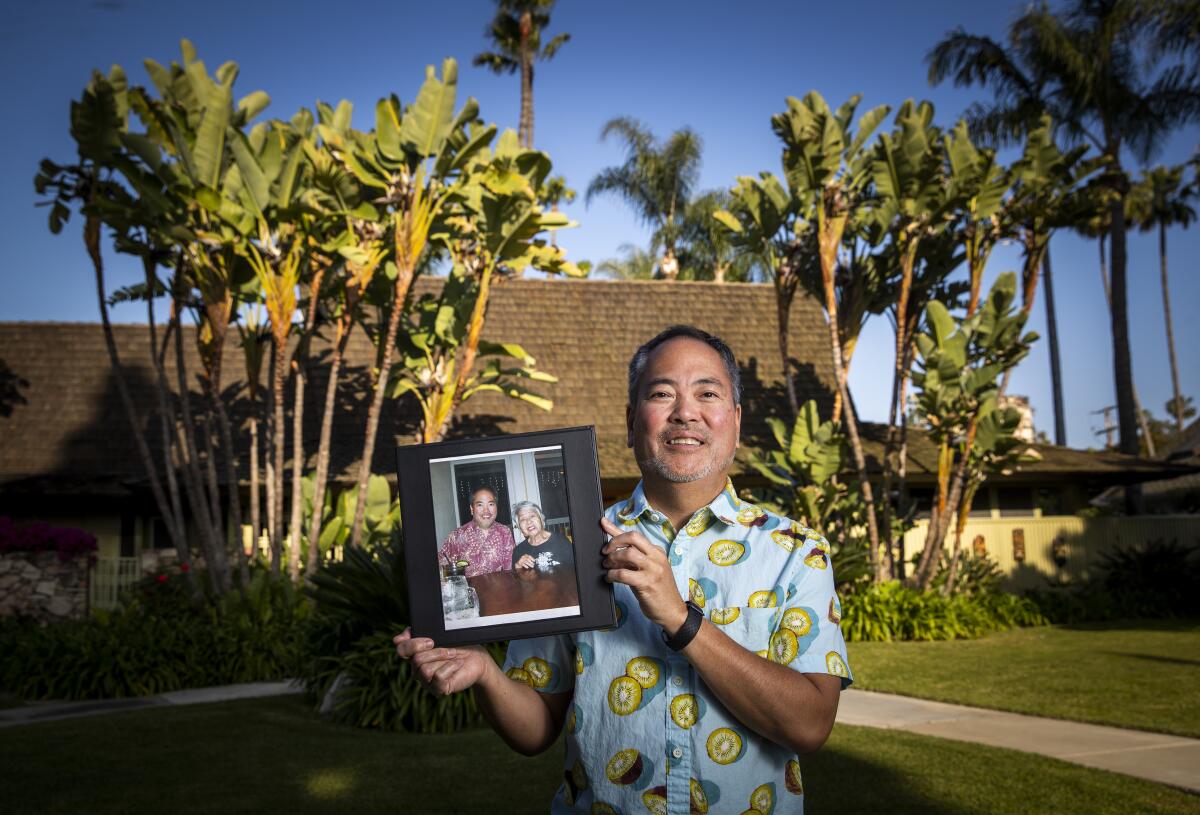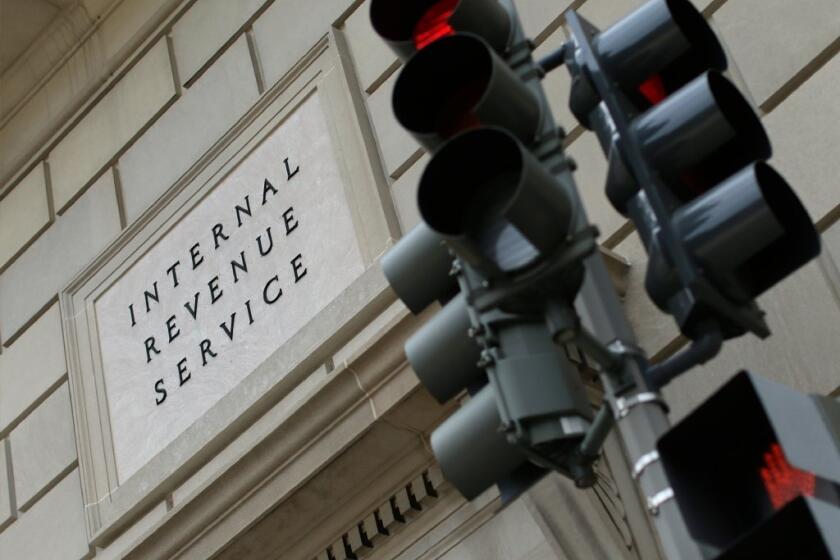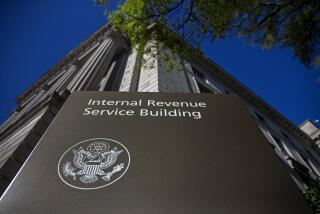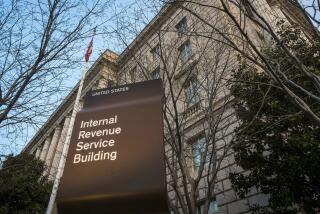Why are the dead getting coronavirus stimulus checks?

Mary Nakamura of Hawaii was among the first Americans to receive one of the federal government’s $1,200 stimulus payments designed to help revive an economy flagging from the COVID-19 pandemic.
There’s just one problem: She’s been dead for more than a year.
Her son, Mason Nakamura, a Santa Ana resident, immediately thought it was a mistake when he saw the April 15 payment in his mother’s account.
“How are dead people going to stimulate the economy?” he thought to himself. “This just doesn’t make any sense.”
Mary Nakamura, who died April 17, 2019, after a stroke, is among thousands of deceased taxpayers who already have or will receive the stimulus payments the Internal Revenue Service dispensed this month. The beneficiaries of the deceased will probably be able to keep the money, tax experts said, raising questions as to whether it’s a fair and good use of taxpayer money when many Americans in desperate need still are waiting for stimulus relief.
The new IRS site will let you check the status of your coronavirus stimulus payment and provide bank account details to receive faster payment.
An IRS spokesman told The Times that the agency is “very aware” of the situation, considers it a high priority and is working on getting the public some answers.
President Trump also acknowledged the issue at a news conference last Friday.
“Sometimes you can send a check to somebody wrong,” he said. “Sometimes people are listed, they die and they get a check. That can happen.”
“We’ll get that back,” the president asserted.
But tax law experts think otherwise. They believe that the language in the stimulus package approved by Congress doesn’t allow the IRS to claw back the money.
It’s not unprecedented for the IRS to distribute payments to the dead in their rush to provide stimulus payments, in this case for more than 150 million Americans. Something similar happened in 2010 during the Great Recession, when the federal government cut $250 checks to an estimated 72,000 deceased taxpayers, according to a Social Security Administration inspector general’s audit report.
After Guatemalan officials reported more than half of deportees on two flights from the U.S. tested positive for COVID-19, the Trump administration deploys the CDC to ‘review’ the country’s results.
After Congress passed the $2-trillion CARES Act in late March, the IRS came under immense pressure to distribute stimulus money as quickly as possible to Americans feeling the economic burn from the COVID-19 pandemic.
To determine eligibility and payment amounts, the IRS looks at adjusted gross income on a household’s 2019 tax return. If the IRS doesn’t have a 2019 return, it determines eligibility based on a 2018 return.
Congress didn’t make exceptions for the deceased, said Nina Olson, former head of the Taxpayer Advocate Service, an internal IRS watchdog.
“The IRS is following the law,” Olson said. “The law tells the IRS to look at what the taxpayer reported on their 2019 return. ‘Look at their income and their filing status. If they are eligible based on that, make the payment.’ It doesn’t say, ‘Don’t make the payment to dead people.’”
Olson said it would be difficult for the IRS to exclude the deceased.
The agency would have to take the time to cross-reference eligibility lists with Social Security death records, said Nicole Kaeding, an economist and vice president of the National Taxpayers Union Foundation, a conservative tax think tank.
“Expediency has been prioritized,” she said. “The IRS would rather be accurate than precise.”
The IRS could have scrubbed the data to eliminate deceased individuals, but doing so would have delayed checks for everyone by weeks or months, Kaeding said.
Both Kaeding and Olson said that beneficiaries of the deceased are legally allowed to keep the money. That’s what happened in 2010. Some returned the money, while others kept it.
For relatives of the deceased, it can be a shock to realize that the government isn’t aware their loved one has died. Many are left wondering what they’ll do with the money and whether they’ll be penalized if they keep it.
Mary Nakamura’s 56-year-old son Mason, a retired engineer who manages his mother’s estate account, said he notified the Social Security Administration and the IRS of his mother’s death.
“We don’t need the money by any means,” he said, adding that he and his husband are well off and would like to return the check.
By contrast, Nakamura said, some of his neighbors who had children in 2018 and need the money didn’t get the $500 stimulus payment for their new child, even though they filed 2018 taxes.
“The whole process seems really hit or miss,” Nakamura said.
For years, the Cerpas sisters engaged in friendly competition, running their own dress shops. Now they’ve come together to make face masks.
Some people have taken to social media and tax expert chat rooms to report payments sent to deceased friends and family members.
Last week, Rep. Thomas Massie, a Republican from Kentucky, said a friend texted him to say that his father had just received a stimulus payment despite being dead since 2018.
“OK this is insane, but just the tip of the iceberg. This is a direct text to me from a friend. I called to confirm this actually just happened,” Massie wrote on Twitter below a screenshot of a message that said, “Dad got his stimulus check of $1200. He died in 2018. Does he have to spend it online?”
In March, both Republicans and Democrats harshly criticized Massie after he was the only member of the House who asked for a roll-call vote on the stimulus bill, which required dozens of representatives to return to Washington despite the pandemic. His request was unsuccessful.
On an Intuit.com chat room, several people related similar situations.
“My mom passed last year. I filed her final tax return last month indicating that she is deceased and yesterday I received a direct deposit in the joint account we shared,” a person with the screen name RoyalK wrote earlier this month. “I don’t want to be penalized by the IRS as I am the sole heir and executor of her estate.”
In California, Nakamura said he doesn’t know yet what he’ll do with the money. He’s thought about what his mother would have done.
Mary Nakamura and her family were rounded up as part of the Executive Order 9066, which condemned more than 120,000 Americans with Japanese ancestry to be incarcerated during World War II.
When she received her reparation payment from the government in the 1980s, she donated it to her college.
“She believed it was her college education that allowed her to move past what she viewed as the inequities after the war and internment,” Mason Nakamura said.
He believes his mother, who died at 96, would have wanted the money donated or returned to the IRS.
But right now, the IRS is also hampered by the coronavirus, operating at limited capacity, with most of its employees working from home.
“Right now the IRS isn’t taking calls and it’s not opening mail,” Olson said. “So he really doesn’t have anyone to return it to.”
More to Read
Start your day right
Sign up for Essential California for news, features and recommendations from the L.A. Times and beyond in your inbox six days a week.
You may occasionally receive promotional content from the Los Angeles Times.










